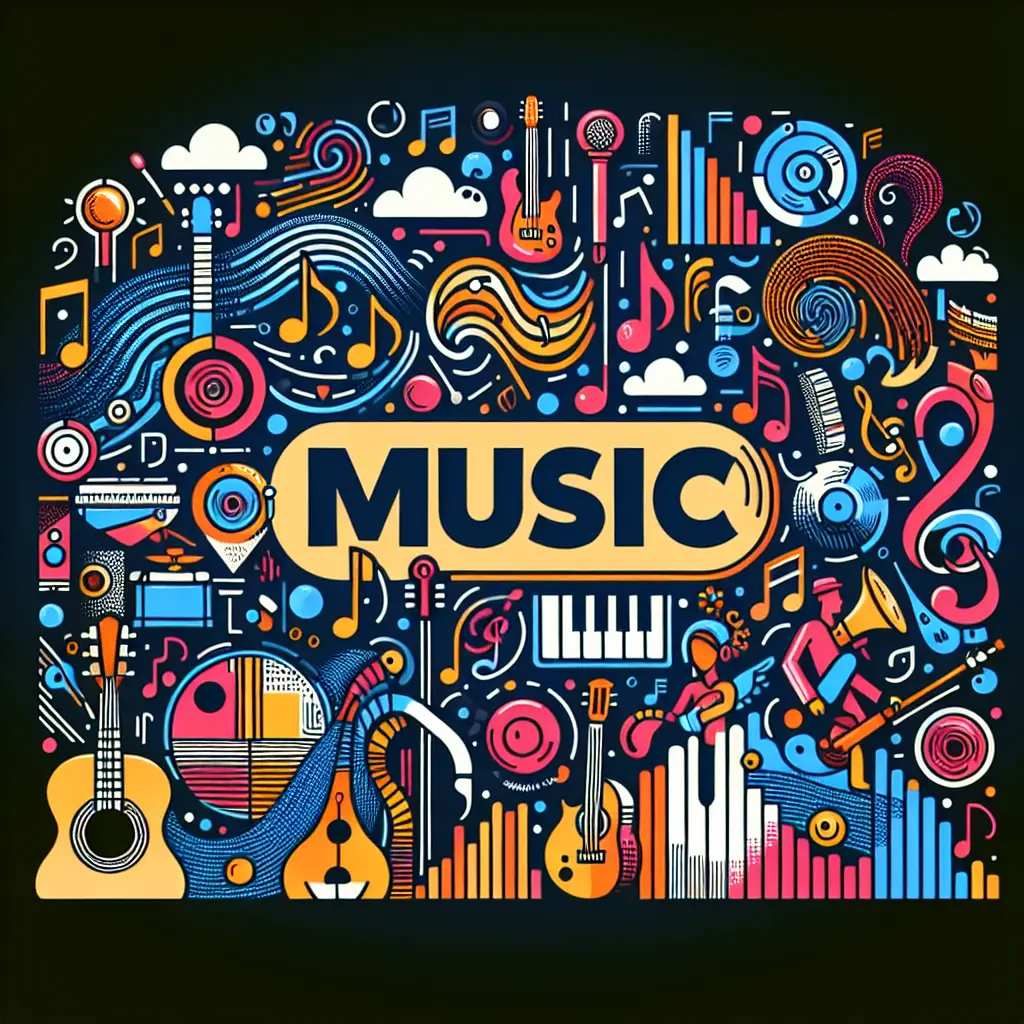Music is undeniably a vital part of our lives. Its magic and power infuse in our day-to-day activities, whether it’s a concert, a workout routine, a dinner party, or simply studying. This incredible art form greatly impacts our emotions and moods. From pop, jazz, rock, country to classical, the genres are endless, offering something for everyone. Music’s depth and complexity demand a comprehensive discussion.
REGARDING SEO:
‘Music’ as a topic has a high search volume and a strong competitive landscape. Therefore, optimizing this content involves deep research into target keywords and phrases. Consider terms like ‘music genres,’ ‘impact of music,’ ‘history of music,’ and ‘evolution of music.’ Using these keywords appropriately delivers high-quality, SEO-friendly material.
HISTORY OF MUSIC:
Delving into the history of music, it dates back to prehistoric times with its first signs found in ancient relics and inscriptions. The advent of musical notation in the 9th and 10th centuries BC dramatically evolved musical composition. Music was primarily religious and used for worship during medieval times, while the Renaissance period marked its flourishing. The Classical period gave birth to symphonies. The 19th-century Romantic period emphasized inner feelings and emotions, shifting from traditional musical norms.
EVOLUTION OF MUSIC:
Music experienced radical progress during the 20th and 21st centuries. Technology revolutionized how music was produced and consumed. From phonographs, radio, and television to tapes, CDs, MP3s, and now musical streaming platforms like Spotify and Apple Music, technology has constantly shaped and reshaped the music industry. Styles and genres grew more diverse, with the rise of jazz, rock ‘n’ roll, pop, hip hop, and numerous other categories.
IMPACT OF MUSIC:
Research demonstrates the profound impact of music on the human brain. Fast-paced music can stimulate brainwaves to resonate in sync with the beat, increasing concentration levels. Similarly, slower tempos promote calmness, relax the mind, and reduce stress. That’s why music therapy is becoming increasingly common in medical scenarios for diverse issues like chronic pain management and boosting memory in Alzheimer’s patients. Furthermore, training in music boosts children’s cognitive and social skills, proving vital for their overall development.
CULTURAL SIGNIFICANCE OF MUSIC:
Music is phenomenally significant for cultural expression. Each region around the globe has its unique music style, defining its cultural identity. Essentially, music reflects a culture’s history, traditions, and lifestyle. Latin music, Hindustani or Carnatic from India, Celtic music, African drumming, or Arabic maqam; all exhibit distinct musical scales, rhythms, and instruments. These variety of cultural music offer a richness to the world music scene.
MUSIC AND TECHNOLOGY:
As mentioned, technology has had a remarkable influence on music production and consumption. Modern software has changed the reality of music composition; digital audio workstations like Ableton Live and Pro Tools are accessible to anyone with a computer. Technologies like MIDI and sampling have allowed the creation of a beat or a piece without traditional instruments. Music distribution has been democratized, with platforms like YouTube and SoundCloud offering opportunities for artists to reach a broader audience without requiring a record label.
MUSIC CAREERS:
Owing to its vastness, music offers ample career options. In addition to performance professionals like singers, composers, and instrumentalists, other significant roles include music producers, audio engineers, artist managers, music therapists, music journalists, and music educators. Some careers focus on technology (like sound engineering), others on business (like artist management), some on health (like music therapy), and some on traditional roles of performance and composition, showing the dynamism in the field of music.
INDUSTRY TRENDS:
Current trends in the music industry reveal a continued shift towards digital consumption. Streaming continues its upward trajectory, as digital revenue makes the most significant contribution to global music income. Emerging markets also represent a substantial growth area, with increasing digital usage and a thriving live music scene. Additionally, there’s a rising demand for vinyl records, sparking a resurgence of interest in this traditional format.
Music is an essential part of our human experience. Its power to move, soothe, uplift, and unite people is unparalleled. Through its various forms throughout history, and its impact on our minds, bodies, and cultures, music indeed proves to be a universal language. Its interplay with technology and the digital world promises an exciting future to look forward to.
Share this content:

